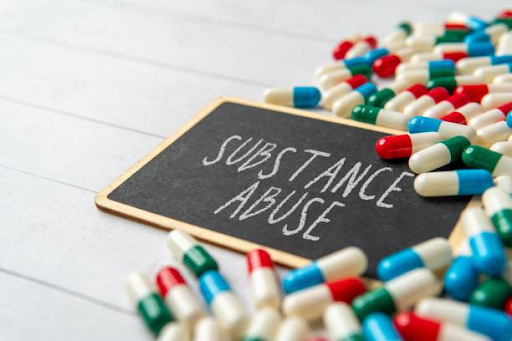“`html
Understanding Addiction: A Primer
Addiction is a complex condition that affects individuals from all walks of life. It is characterized by a compulsive engagement in rewarding stimuli despite adverse consequences. This disorder often arises from a combination of biological, psychological, and environmental factors. Understanding the nature of addiction is critical, as it is not merely a lack of willpower but rather a multifaceted disease. Comprehensive education about addiction can pave the way for effective recovery and treatment strategies (Source: National Institutes of Health).
The Spectrum of Treatment Options
Addiction treatment programs vary widely to cater to the unique needs of individuals struggling with substance use disorders. The primary categories include inpatient programs, outpatient programs, and support groups, each with distinct characteristics and benefits.
Inpatient Treatment Programs
Inpatient treatment offers a structured environment where patients reside at a treatment facility for the duration of their program. This care type is typically recommended for more severe cases of addiction, providing round-the-clock supervision and an immersive treatment experience. Studies indicate that individuals participating in inpatient programs have higher long-term success rates due to the intensive nature of the care provided and the supportive environment fostered by professional staff (Source: National Institutes of Health).
Outpatient Treatment Programs
Outpatient treatment offers greater flexibility and allows individuals to continue their regular daily activities while receiving care. Patients attend therapy sessions and counseling at specified times during the week and return home after each session. This model is particularly beneficial for those with less severe addictions or for individuals transitioning from inpatient care. Evidence suggests that outpatient programs can be effective when combined with a strong support system and consistent adherence to treatment schedules (Source: Substance Abuse and Mental Health Services Administration).
Support Groups
Support groups, such as Alcoholics Anonymous (AA) and Narcotics Anonymous (NA), provide a platform for individuals to share their experiences, offer mutual support, and encourage one another in their recovery journeys. Research indicates that participation in support groups can significantly enhance recovery outcomes by helping individuals maintain sobriety, reduce relapse rates, and foster a sense of belonging (Source: National Institutes of Health).
Innovative Approaches in Treatment
Recent trends in addiction recovery are characterized by innovative approaches focused on technology, holistic therapies, and personalized care plans.
Technology in Treatment
Technology is significantly transforming addiction recovery by integrating digital tools such as teletherapy, mobile apps, and virtual support systems. These innovations enhance accessibility and convenience, enabling individuals to seek help regardless of location. Clinical studies suggest that these technologies can improve treatment adherence and outcomes through personalized interventions and support networks (Source: National Institutes of Health).
Holistic Therapies
Holistic approaches address not just the physical symptoms of addiction but also the mental, emotional, and spiritual aspects. Popular methods include yoga, acupuncture, mindfulness meditation, and nutrition therapy, which promote overall well-being and stress reduction. Research shows that holistic therapies can enhance traditional treatments by reducing anxiety and increasing emotional regulation, making them an effective complement to conventional rehab programs (Source: Hindawi).
Personalized Care Plans
The shift towards personalized care is redefining treatment paradigms in addiction recovery. By tailoring plans to fit individual needs, clinicians can provide more effective interventions. A study found that personalized care led to significantly better retention rates in treatment programs (Source: National Institutes of Health).
The Role of Family and Community Support
Family involvement and community support are essential elements in the recovery journey from addiction and mental health issues. Engaging family members in the treatment process enhances outcomes, as they often provide emotional support, encouragement, and a sense of accountability. Studies indicate that individuals with strong familial support during recovery are more likely to maintain sobriety (Source: National Center for Biotechnology Information).
Similarly, community support, encompassing local resources and peer networks, plays a critical role. Structured programs that involve community participation foster a sense of belonging among individuals in recovery (Source: SAMHSA).
Moreover, involvement from both family and community helps address the stigma surrounding mental health and addiction. By fostering open conversations and encouraging participation, these support systems can transform recovery into a collective mission, enhancing resilience among individuals facing these challenges (Source: Atlanta Treatment Center).
Navigating the Path to Recovery: What to Expect
The recovery process from addiction is a multifaceted journey comprising several distinct stages, each associated with unique challenges and necessary strategies for maintaining long-term sobriety.
Stages of Recovery
- Precontemplation: Individuals may not yet recognize the extent of their addiction and often require motivational strategies to encourage self-awareness.
- Contemplation: In this phase, individuals begin to consider the possibility of recovery, and educational resources can be impactful.
- Preparation: This phase involves planning for change, where individuals gather resources for their recovery journey.
- Action: Active participation in treatment occurs here, engaging in evidence-based practices such as therapy.
- Maintenance: The goal is to prevent relapse and sustain recovery, often involving support from peers and healthy routines.
- Relapse: Many individuals experience setbacks; understanding this can help in developing robust response plans (Source: Atlanta Treatment Center).
Challenges During Recovery
Challenges can include cravings and triggers, social stigma, and co-occurring mental health issues. Building a supportive network and implementing effective coping mechanisms are crucial (Source: Atlanta Treatment Center).
Tips for Long-term Sobriety
To maintain sobriety over the long term, consider establishing a support system, developing healthy habits, avoiding high-risk situations, continuously educating yourself, and seeking professional help.
Sources
- Hindawi – Holistic Therapies in Addiction Recovery
- National Institutes of Health – Personalized Treatment in Addiction
- National Center for Biotechnology Information – Family Support and Recovery
- National Institutes of Health – Addiction Treatment Overview
- National Institutes of Health – Support Groups and Recovery
- Substance Abuse and Mental Health Services Administration – Treatment Options
- SAMHSA – Community Support in Recovery
- Atlanta Treatment Center – Overcoming Stigma of Mental Illness
- Atlanta Treatment Center – Alcohol and Drug Evaluations
- Atlanta Treatment Center – The Four-Step Process of Rehab Treatment
- Atlanta Treatment Center – MRT Therapy
“`










